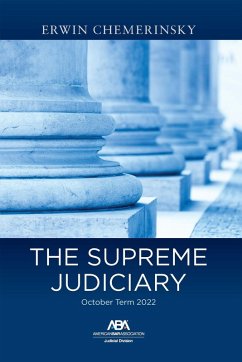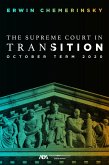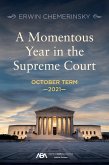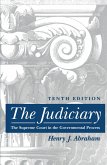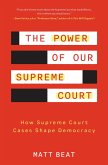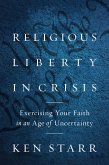The 2016 presidential election profoundly reshaped the Supreme Court. President Donald Trump's selection of three justices - Neil Gorsuch, Brett Kavanaugh, and Amy Coney Barrett - created a solid six-justice conservative majority. The impact was seen a year ago in October Term 2021, Justice Barrett's first full term. The Court overruled Roe v. Wade, dramatically increased the protection for gun rights, found a First Amendment right for a high school football coach to pray publicly on the field after games, and ruled that the Environmental Protection Agency lacked the authority to regulate greenhouse gas emissions from coal-fired power plants.
In the last days of October Term 2022, the Court, again in a series of 6-3 decisions, moved the law significantly to the right in restricting affirmative action by colleges and universities, creating a First Amendment exception to state anti-discrimination laws for those engaged in expressive activities, and invalidating President Joe Biden's student loan forgiveness program. But unlike the prior term, there were some significant surprises from the conservative Court, including finding that Alabama violated the Voting Rights Act in its drawing of congressional districts, rejecting the "independent state legislature" theory which would have precluded state courts from enforcing state constitutions in elections for Congress, and in upholding the Indian Child Welfare Act. Overall, the conservative position prevailed in the most high-profile cases, but less consistently than the year before.
October Term 2021 was momentous, from abortion and gun rights to religion and greenhouse gas emissions. In the past, the Court seemed to follow a blockbuster term with a sleepier one. October Term 2022 deviated from this pattern. As described in the following chapters, it was another momentous year - filled with cases that significantly changed the law in many areas and that will significantly affect people's lives.
In the last days of October Term 2022, the Court, again in a series of 6-3 decisions, moved the law significantly to the right in restricting affirmative action by colleges and universities, creating a First Amendment exception to state anti-discrimination laws for those engaged in expressive activities, and invalidating President Joe Biden's student loan forgiveness program. But unlike the prior term, there were some significant surprises from the conservative Court, including finding that Alabama violated the Voting Rights Act in its drawing of congressional districts, rejecting the "independent state legislature" theory which would have precluded state courts from enforcing state constitutions in elections for Congress, and in upholding the Indian Child Welfare Act. Overall, the conservative position prevailed in the most high-profile cases, but less consistently than the year before.
October Term 2021 was momentous, from abortion and gun rights to religion and greenhouse gas emissions. In the past, the Court seemed to follow a blockbuster term with a sleepier one. October Term 2022 deviated from this pattern. As described in the following chapters, it was another momentous year - filled with cases that significantly changed the law in many areas and that will significantly affect people's lives.
Dieser Download kann aus rechtlichen Gründen nur mit Rechnungsadresse in A, D ausgeliefert werden.

